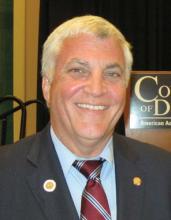Is an increased role for pharmacists in managing medications for chronic conditions one way to help save precious health care dollars? That’s the question Food and Drug Administration officials have posed in anticipation of a 2-day hearing at the end of March.
Such an idea is being met with enthusiasm from pharmacists, but with skepticism from physicians.
The FDA wants to explore new ways of dispensing certain medications in an effort to expand access to treatment for people with common – but undertreated – medical conditions, such as hyperlipidemia, hypertension, migraine, and asthma.
In a notice announcing the potential changes, officials said some patients were missing necessary care because of the cost and time involved in seeing a physician. And some physician visits could be eliminated by making certain medications nonprescription and adding conditions of safe use, according to the notice.
In its hearing notice, the agency outlined a variety of ways that drugs could be made available over and behind the counter.
• Lengthen the time between follow up visits. Under this scenario, patients would see their physician or other health care provider for an initial prescription; the prescriber would authorize refills beyond what normally are currently allowed before a follow-up visit is required. In addition, conditions of safe use would be set for the refills. In its proposal, FDA officials noted that this approach could be used for rescue inhalers to treat asthma, or epinephrine for allergic reactions.
• Make use of new technology. A patient could use a pharmacy kiosk or website to self-screen for a particular condition; an associated algorithm would help the patient determine whether a particular medication is appropriate or contraindicated.
• Move more drugs behind the counter. Certain drugs would be reclassified as nonprescription; however, to purchase the drug, the patient would need to visit with the pharmacist. Pharmacists could potentially be involved in conducting and interpreting diagnostics including blood tests or liver function tests. Based on the results of those tests, pharmacists could help determine if a particular drug is appropriate or contraindicated.
The FDA is also considering some type of dual availability, in which certain drugs would be available both by prescription as well as nonprescription with certain conditions of safe use.
Making medications more readily available through the pharmacy has the potential to reduce costs, the FDA said.
"In addition to improved health outcomes for consumers staying on their medications, the time and attention that physicians and other health care provider expend on routine tasks related to prescription refills reduces the time that they are available to attend to more seriously ill patients," the FDA wrote in its hearing notice. "Eliminating or reducing the number of routine visits could free up prescribers to spend time with more seriously ill patients, reduce the burdens on the already overburdened health care system, and reduce health care costs."
Physicians have concerns about how the idea would be applied.
The FDA paradigm has the potential for both benefit and harm, depending on how it is applied, said Dr. Samuel Frank, a neurologist in Boston and a member of the American Academy of Neurology’s Patient Safety Subcommittee. It could work well to give patients nonprescription access to medications – for instance, in cases of intermittent, medication-responsive migraines. But there is "much potential for harm" with other neurologic conditions in which a neurologist must make a proper diagnosis and determine appropriate diagnostic tests and a treatment plan, he said.
Dr. Glen Stream, president of the American Academy of Family Physicians, said he’s concerned that the FDA’s approach would treat medical conditions in isolation, without considering the patient’s other medical problems or how the conditions developed. It also leaves prevention and wellness out of the equation, he said.
Dr. Stream said there’s an important role for the pharmacist to play in helping to manage medications as part of the patient-centered medical home. But in those cases, the pharmacist is part of a larger medical team directed by the physician, he said.
Pharmacists’ groups are supportive of the possible change, and see the potential for both cost savings and improvements in public health.
"We think it means greater access," said Ronna Hauser, Pharm.D., vice president of policy and regulatory affairs at the National Community Pharmacists Association.
The proposal would also save money, she said, by cutting down on physician office visits, as well as avoiding costly trips to the emergency department. There is the potential for significant savings simply by making asthma rescue inhalers and epinephrine autoinjectors available without a prescription. Currently, if patients are without those medications in an emergency, they often end up in the ED.



